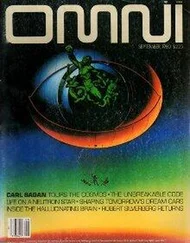Robert Silverberg - With Caesar in the Underworld
Здесь есть возможность читать онлайн «Robert Silverberg - With Caesar in the Underworld» весь текст электронной книги совершенно бесплатно (целиком полную версию без сокращений). В некоторых случаях можно слушать аудио, скачать через торрент в формате fb2 и присутствует краткое содержание. Год выпуска: 2003, ISBN: 2003, Издательство: HarperCollins, Жанр: Альтернативная история, на английском языке. Описание произведения, (предисловие) а так же отзывы посетителей доступны на портале библиотеки ЛибКат.
- Название:With Caesar in the Underworld
- Автор:
- Издательство:HarperCollins
- Жанр:
- Год:2003
- ISBN:978-0-380-97859-5
- Рейтинг книги:5 / 5. Голосов: 1
-
Избранное:Добавить в избранное
- Отзывы:
-
Ваша оценка:
- 100
- 1
- 2
- 3
- 4
- 5
With Caesar in the Underworld: краткое содержание, описание и аннотация
Предлагаем к чтению аннотацию, описание, краткое содержание или предисловие (зависит от того, что написал сам автор книги «With Caesar in the Underworld»). Если вы не нашли необходимую информацию о книге — напишите в комментариях, мы постараемся отыскать её.
With Caesar in the Underworld — читать онлайн бесплатно полную книгу (весь текст) целиком
Ниже представлен текст книги, разбитый по страницам. Система сохранения места последней прочитанной страницы, позволяет с удобством читать онлайн бесплатно книгу «With Caesar in the Underworld», без необходимости каждый раз заново искать на чём Вы остановились. Поставьте закладку, и сможете в любой момент перейти на страницу, на которой закончили чтение.
Интервал:
Закладка:
At last, well satisfied with his purchases, Menandros said he was willing to move on. At the far end of the hall, beyond the territory of the peddlers of spells, they paused at the domain of the soothsayers and augurs. “For a copper or two,” Faustus told the Greek, “they will look at the palm of your hand, or the pattern of lines on your forehead, and tell you your future. For a higher price they will examine the entrails of chickens or the liver of a sheep, and tell you your true future. Or even the future of the Empire itself.”
Menandros looked astonished. “The future of the Empire? Common diviners in a public marketplace offer prophecies of a sort like that? I’d think only the Imperial augurs would deal in such news, and only for the Emperor’s ear.”
“The Imperial augurs provide more reliable information, I suppose,” said Faustus. “But this is Roma, where everything is for sale to anyone.” He looked down the row and saw the one who had claimed new knowledge of the Sibylline prophecies and foretold the imminent end of the Empire—an old man, unmistakably Roman, not a Greek or any other kind of foreigner, with faded blue eyes and a lengthy, wispy white beard. “Over there is one of the most audacious of our seers, for instance,” Faustus said, pointing. “For a fee he will tell you that our time of Empire is nearly over, that a year is coming soon when the seven planets will meet at Capricorn and the entire universe will be consumed by fire.”
“The great ekpyrosis, ” Menandros said. “We have the same prophecy. What does he base his calculations on, I wonder?”
“What does it matter?” cried Maximilianus, in a burst of sudden unconcealed rage. “It is all foolishness!”
“Perhaps so,” Faustus said gently. And, to Menandros, whose curiosity about the old man and his apocalyptic predictions still was apparent: “It has something to do with the old tale of King Romulus and the twelve eagles that passed overhead on the day he and his brother Remus fought over the proper location for the city of Roma.”
“They were twelve vultures, I thought,” said bar-Heap.
Faustus shook his head. “No. Eagles, they were. And the prophecy of the Sibyl is that Roma will endure for twelve Great Years of a hundred years each, one for each of Romulus’s eagles, and one century more beyond that. This is the year 1282 since the founding. So we have eighteen years left, says the long-bearded one over there.”
“This is all atrocious foolishness,” said Maximilianus again, his eyes blazing.
“May we speak with this man a moment, even so?” Menandros asked.
The Caesar most plainly did not want to go near him. But his guest’s mild request could hardly be refused. Faustus saw Maximilianus struggling with his anger as they walked toward the soothsayer’s booth, and with some effort putting it aside. “Here is a visitor to our city,” said Maximilianus to the old man in a clenched voice, “who wants to hear what you’ve to say concerning the impending fiery end of Roma. Name your price and tell him your fables.”
But the soothsayer shrank back, trembling in fear. “No, Caesar. I pray you, let me be!”
“You recognize me, do you?”
“Who would not recognize the Emperor’s son? Especially one whose profession it is to pierce all veils.”
“You’ve pierced mine, certainly. But why do I frighten you so? I mean you no harm. Come, man, my friend here is a Greek from Justinianus’s court, full of questions for you about the terrible doom that shortly will be heading our way. Speak your piece, will you?” Maximilianus pulled out his purse and drew a shining gold piece from it. “A fine newly minted aureus, is that enough to unseal your lips? Two? Three?”
It was a fortune. But the man seemed paralyzed with terror. He moved back in his booth, shivering, now, almost on the verge of collapse. The blood had drained from his face and his pale blue eyes were bulging and rigid. It was asking too much of him, Faustus supposed, to be compelled to speak of the approaching destruction of the world to the Emperor’s actual son.
“Enough,” Faustus murmured. “You’ll scare the poor creature to death, Maximilianus.”
But the Caesar was bubbling with fury. “No! Here’s gold for him! Let him speak! Let him speak!”
“Caesar, I will speak to you, if you like,” said a high-pitched, sharp-edged voice from behind them. “And will tell you such things as are sure to please your ears.”
It was another soothsayer, a ratty little squint-faced man in a tattered yellow tunic, who now made so bold as to pluck at the edge of Maximilianus’s toga. He had cast an augury for Maximilianus just now upon seeing the Caesar’s entry into the marketplace, he said, and would not even ask a fee for it. No, not so much as two coppers for the news he had to impart. Not even one.
“Not interested,” Maximilianus said brusquely, and turned away.
But the little diviner would not accept the rebuff. With frantic squirrelly energy he ran around Maximilianus’s side to face him again and said, with the reckless daring of the utterly insignificant confronting the extremely grand, “I threw the bones, Caesar, and they showed me your future. It is a glorious one. You will be one of Roma’s greatest heroes! Men will sing your praises for centuries to come.”
Instantly a bright blaze of fury lit Maximilianus’s entire countenance. Faustus had never seen the prince so incensed. “Do you dare to mock me to my face?” the Caesar demanded, his voice so thick with wrath that he could barely get the words out. His right arm quivered and jerked as though he were struggling to keep it from lashing out in rage. “A hero, you say! A hero! A hero !” If the little man had spat in his face it could not have maddened him more.
But the soothsayer persisted. “Yes, my lord, a great general, who will shatter the barbarian armies like so many empty husks! You will march against them at the head of a mighty force not long after you become Emperor, and—”
That was too much for the prince. “Emperor, too!” Maximilianus bellowed, and in that same moment struck out wildly at the man, a fierce backhanded blow that sent him reeling against the bench where the other soothsayer, the old bearded one, still was cowering. Then, stepping forward, Maximilianus caught the little man by the shoulder and slapped him again and again, back, forth, back, forth, knocking his head from side to side until blood poured from his mouth and nose and his eyes began to glaze over. Faustus, frozen at first in sheer amazement, moved in after a time to intervene. “Maximilianus!” he said, trying to catch the Caesar’s flailing arm. “My lord—I beg you—it is not right, my lord—”
He signaled to bar-Heap, and the Hebrew caught Maximilianus’s other arm. Together they pulled him back.
There was sudden silence in the hall. The sorcerers and their employees had ceased their work and were staring in astonishment and horror, as was Menandros.
The ragged little soothsayer, sprawling now in a kind of daze against the bench, spat out a tooth and said, in a kind of desperate defiance, “Even so, your majesty, it is the truth: Emperor.”
It was all that Faustus and the Hebrew could manage to get the prince away from there without his doing further damage.
This capacity for wild rage was an aspect of Maximilianus that Faustus had never seen. The Caesar took nothing seriously. The world was a great joke to him. He had always let it be known that he cared for nothing and no one, not even himself. He was too cynical and wanton of spirit, too flighty, too indifferent to anything of any real importance, ever to muster the kind of involvement with events that true anger required. Then why had the soothsayer’s words upset him so? His fury had been out of all proportion to the offense, if offense there had been. The man was merely trying to flatter. Here is a royal prince come among us: very well, tell him he will be a great hero, tell him even that he will be Emperor some day. The second of those, at least, was not impossible. Heraclius, who soon would have the throne, might well die childless, and they would have no choice but to ask his brother to ascend to power, however little Maximilianus himself might care for the idea.
Читать дальшеИнтервал:
Закладка:
Похожие книги на «With Caesar in the Underworld»
Представляем Вашему вниманию похожие книги на «With Caesar in the Underworld» списком для выбора. Мы отобрали схожую по названию и смыслу литературу в надежде предоставить читателям больше вариантов отыскать новые, интересные, ещё непрочитанные произведения.
Обсуждение, отзывы о книге «With Caesar in the Underworld» и просто собственные мнения читателей. Оставьте ваши комментарии, напишите, что Вы думаете о произведении, его смысле или главных героях. Укажите что конкретно понравилось, а что нет, и почему Вы так считаете.












